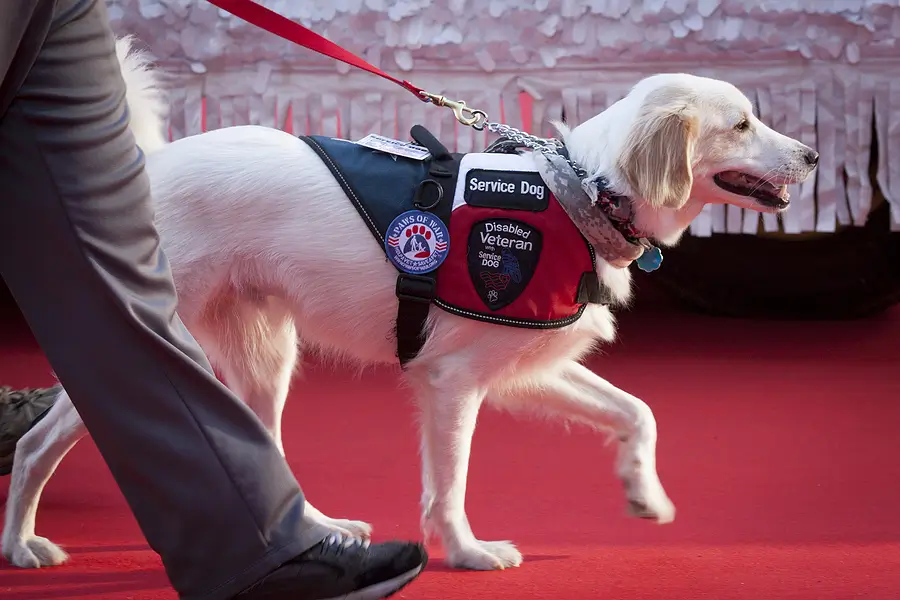When it comes to animals in the home, landlords often face questions about the distinction between pets, service animals, and emotional support animals (ESAs). Understanding these differences is vital not only for complying with various housing laws but also for properly screening tenants. A clear understanding ensures that landlords can accommodate tenants' needs while upholding property rules and creating a peaceful environment for all residents.
At Monte Davis Property Management, we handle the tenant screening process, ensuring that all requests related to pets, service animals, or emotional support animals are evaluated thoroughly and in compliance with the law.
In this blog, we’ll explore the differences between pets and service/emotional support animals, the legal aspects surrounding these companion animals, and what both landlords and tenants need to know when handling requests for reasonable accommodations under federal and state laws.
By knowing the legal requirements and responsibilities in advance, landlords can rely on our expertise to incorporate these considerations into the tenant screening process, ensuring transparency and compliance from the start.
Emotional Support Animals vs. Service Animals: What’s the Difference?
While the terms "emotional support animal" and "service animal" are often used interchangeably, they are quite different in terms of legal definitions and the type of support they provide. Both animals play critical roles in assisting individuals with disabilities, but emotional support animals provide comfort and emotional support. Service animals are also specifically trained to perform tasks for people with disabilities.
Service Animals
Under the Americans with Disabilities Act (ADA), a service animal is defined as a dog (or, in some cases, a miniature horse) that has been individually trained to perform tasks or do work for a person with a disability. These animals are trained to assist individuals with a variety of physical or mental disabilities, including:
Guide dogs for the blind
Service dogs for hearing impairments
Mobility assistance dogs
Therapy dogs for conditions such as post-traumatic stress disorder (PTSD) or anxiety attacks.
A service animal must be trained to perform specific tasks directly related to the person’s disability. For example, a service dog may be trained to pull a wheelchair, retrieve dropped items, or alert a person to an approaching danger.
Key Legal Protections for Service Animals
Service animals are entitled to certain protections under federal law, including the ADA, which requires that they be allowed in public places and housing programs. The Fair Housing Act (FHA) also ensures that service animals are permitted in housing where pets may not be allowed, as long as the animal is required for the individual’s disability. Federal agencies such as the Aviation Consumer Protection Division (ACPD) also provide regulations supporting service animals' rights when it comes to air travel, ensuring service animals can accompany their handlers in airplanes, subject to state or local laws.
It's important to note that service animals must always be under the handler’s control. If the animal is not behaving or posing a direct threat to others, landlords may not have the right to restrict them based on pet policies. Also, if the service animal’s presence causes disruption, such as excessive barking or aggressive behavior, the landlord can address the behavior, but not the service animal itself.
Emotional Support Animals
Emotional support animals (ESAs), on the other hand, are not required to have any specific training to perform tasks. Their primary role is to provide comfort and emotional support to individuals suffering from mental illness or emotional disabilities. This includes anxiety, depression, PTSD, or phobias.
ESA’s presence can significantly alleviate symptoms of the individual's mental health or emotional challenges. Many people with emotional support dogs or other animals rely on them to help manage their mental health, especially in stressful situations.
Legal Considerations for Emotional Support Animals
The Fair Housing Act (FHA) extends protections for emotional support animals as well. While emotional support dogs are not considered service animals under the ADA, they are still protected under the Fair Housing Act in housing situations. This means landlords are generally required to make reasonable accommodations for individuals with emotional support animals. This may include allowing the animal to live in housing that otherwise prohibits pets.
An important distinction here is that a tenant requesting an emotional support dog may need to provide documentation from a licensed mental health professional stating that the animal is necessary for the person’s emotional or mental health. Landlords must assess such requests on a case-by-case basis and may need to make reasonable modifications to their policies.
Service Animals vs. Emotional Support Animals: Understanding the Legal Differences
So, what’s the key difference between a service animal and an emotional support animal?
Service animals are specifically trained to perform tasks that assist with a person's disability. While service dogs are the most common, miniature horses are also recognized as service animals in some cases. These animals have legal protections under the ADA, allowing them to accompany their handlers in almost all public spaces, including restaurants, hotels, and housing.
Emotional support animals (ESAs), on the other hand, provide comfort and emotional relief through their presence but are not trained to perform specific tasks. These can include dogs, cats, birds, or even other animals, as long as they provide emotional comfort. Emotional support animals are protected under the Fair Housing Act, which allows them to live with their owners in housing where pets may otherwise be prohibited. However, ESAs are not typically allowed in public spaces unless specific exceptions are made.
Understanding the legal distinctions between these animals is crucial for landlords and property managers. Service animals and emotional support animals may both be eligible for reasonable accommodations in housing, but they are treated differently in terms of training and tasks performed.
Handling Requests for Service and Emotional Support Animals
As a property manager, receiving requests for emotional support animals or service animals is common. Here are a few guidelines for handling these requests:
1. Verify the Need for the Animal
For service animals, you cannot ask for documentation of the disability or the tasks the animal performs unless the animal is not readily identifiable as a service animal. You may ask the handler if the animal is required because of a disability and what tasks the animal performs.
For emotional support animals, you can request documentation from a licensed mental health professional confirming that the animal is necessary for the tenant’s mental health or emotional well-being.
2. Assess on a Case-by-Case Basis
Under both the ADA and the Fair Housing Act, requests for reasonable accommodations must be assessed on a case-by-case basis. While a service animal generally cannot be denied entry, an emotional support animal may be denied if it poses a direct threat to others or if the animal's behavior is disruptive or out of control.
3. State and Local Laws
Be sure to check state and local laws regarding service and emotional support animals, as these may offer additional protections or requirements for handling such requests. While federal law offers a broad framework, local regulations could offer further clarification on specific accommodation requests.
4. Communicate Clearly with Tenants
Ensure that tenants are aware of your property’s policies concerning service animals and emotional support animals. Establish clear, written guidelines for requesting accommodations, and make sure that tenants know what documentation is required.
Wrapping Up: Key Insights for Landlords and Renters on Service and Emotional Support Animals
Understanding the distinction between pets and service/emotional support animals is essential for both landlords and tenants. Whether you're dealing with a service animal that performs specific tasks or an emotional support animal offering comfort, it’s crucial to comply with federal laws like the Fair Housing Act and the Americans with Disabilities Act. By doing so, you help create an inclusive and supportive living environment for tenants with disabilities.
At Monte Davis Property Management, we are committed to providing the best possible service and support, helping both landlords and tenants navigate the complexities of housing laws for service and emotional support animals.
If you have further questions or need assistance with handling requests for service or emotional support animals, don’t hesitate to contact us today!








